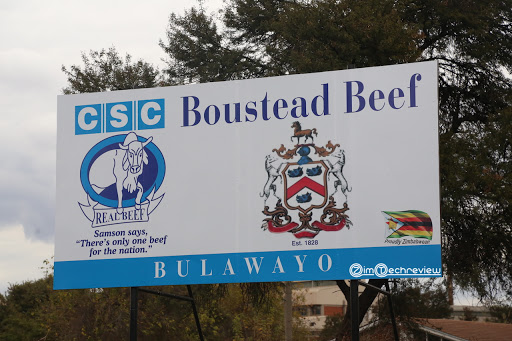CSC reopens
VICE President, Dr Constantino Chiwenga, is set to preside over the re-opening of the refurbished Cold Storage Company (CSC) Boustead Beef Zimbabwe processing plant in Bulawayo tomorrow.
Hopes are high that the resumption of operations at the country’s largest meat processor and marketer, will boost Bulawayo’s economy and create job opportunities.
The beef processing plant is being revamped after the Government in 2019 signed a US$400 million Joint Venture Farming Concession Agreement with Boustead Beef Zimbabwe, a United Kingdom-based investor.
After several false starts, the meat processor and marketer is now scheduled to re-open tomorrow for the first time in 20 years.
Its re-opening is expected to bring economic boom across the value chain through value addition, economists have said.
Boustead Beef Zimbabwe’s main mandate is to revive the strategic company’s operations across the country by refurbishing industrial assets such as ranches, feedlots and residential properties.
In June, despite stakeholder criticism over delays in resuscitating the factory, Boustead Beef investor representative Mr Nick Havercroft had indicated that operations would resume by the end of August.
The resuscitation of the Bulawayo plant has largely been delayed by Covid-19-induced national lockdowns as the investor could not import critical spares to facilitate the rehabilitation project.
According to a preliminary launch programme from the Government, Dr Chiwenga will be accompanied by Lands, Agriculture, Fisheries, Water and Rural Resettlement Minister, Dr Anxious Masuka, Deputy Minister Davis Marapira and permanent secretary, Dr John Basera and Minister of State for Bulawayo Metropolitan Province Judith Ncube.
A tour of the plant would be conducted before commissioning.
Deputy Minister Raji Modi
Commenting on the development, Industry and Commerce Deputy Minister, Raji Modi, said the re-opening of the firm will have a huge bearing on employment creation, assist cattle breeders with ready markets and also boost the transport sector.
“It’s exciting to learn that CSC will be re-opening on Thursday. I have been working closely with new management for the past two years since the factory falls within my constituency.
“Already scores of youths have been employed and will be engaged in the coming weeks.
This is good for employment creation and in years past, about 3 000 people used to be employed there directly and indirectly,” said Modi.
On a broader outlook, he said farmers in the Matabeleland region now have readily available markets for their livestock. He added that farmers also stand to benefit from possible contracts and ties with the firm.
“People in the transport sector also stand to benefit when they are hired by farmers to transport their livestock to the CSC factory,” said the Deputy Minister. In June, Boustead Beef officials said the ultimate aim was to slaughter 1 000 cattle per day but as a start, they are looking at 200.
The UK-based investor, Boustead Beef, entered into a 25-year joint venture agreement with the Government in January 2019 to revive CSC, but the parties jointly filed for corporate rescue in December 2020 after some creditors sought to file for liquidation.
Mr Vonani Majoko
However, the High Court recently ordered the removal of business rescue practitioner, Mr Vonani Majoko following an application by Boustead Beef.
At its peak in the 1990s, the company that owns four abattoirs in the country, used to
employ thousands of permanent workers and hundreds of casual employees, thereby
making it one of Zimbabwe’s biggest employers.
Before its closure, CSC used to export beef, sheep and goat meat to several countries but
was forced to stop due to viability challenges.
CSC used to play a leading role in the processing and marketing of Zimbabwe’s beef since
its inception in 1937.
Since 1992, CSC largely survived on EU exports and had a $15 million revolving payment
facility with the bloc.
The facility was discontinued after the EU suspended imports in 2001 following an
outbreak of foot and mouth disease.
CSC had an annual quota of 9 100 tons and used to earn at least $45 million per year from
the EU export quota.
In 2010, the cash-strapped CSC was forced to abandon an ambitious project to supply
goat meat to Angola as farmers expressed dissatisfaction with supplying small stock on
credit to the company.
CSC intended to collect goats from farmers and slaughter them before selling the meat to
Angola and paying the farmers later, an arrangement that was turned down by farmers.
Increased livestock production is significant in the broader agriculture sector, the
mainstay of the country’s economy.
The Government, development partners and the private sector have agreed to intensify
collaboration toward robust revitalisation of the entire beef, goat and leather value
chain. -chronicle.c.zw










